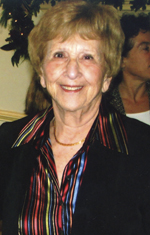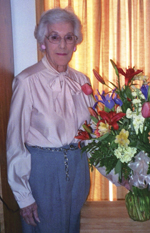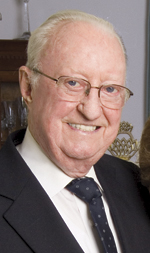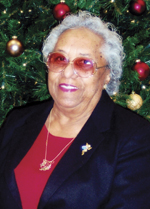Staying
in the Game
by Audrey T.
Hingley, Contributing Writer
Thinking about
saying farewell to the workforce? Here are some insights from seasoned
retirees about life beyond the business world ...
Some people dream of retirement �
but dreams and reality are often very different.
Your life�s work may be over, but
your life isn�t. Retirement is actually a life transition, moving from
one phase of life to another. What�s retirement really like? What do
current retirees wish someone had told them? What about all the emphasis
on retirement planning?
Experts like psychologist/author Nancy
Schlossberg say the biggest mistake people make is not realizing the
psychological component of retirement. Schloss�berg,
who authored Retire Smart, Retire Happy: Finding Your True Path in Life,
says work gives people identity, routine and even social life and
relationships. Many feel a sense of loss after they bid adieu to
colleagues. Other experts say most retirees are happy at the beginning of
retirment but this initial happiness can wear off � and then what?
|

Vivian
Chasin |
Vivian Chasin, 77, lives in
Albemarle
County
and retired nine years ago, at age 68. A former hospital psychiatric
registered nurse, she remembers retiring as �very hard.� In her case,
morale at her workplace had been low and she felt it was time to retire.
�It was very impulsive ... after I
retired I thought, what am I going to do?� she recalls. �I had no plan
for retirement.�
Chasin heard about a program at the
University
of
Virginia
that provided health information for people and she started volunteering
twice weekly. Today she has a paid position with a
child-assault-prevention program and is an administrative volunteer at the
Jefferson Area Board for Aging in
Charlottesville
. She also takes a water aerobics class three times a week.
Chasin says the biggest surprise about
retirement was that she missed the structure of work. She also discovered
the things at home she thought she�d do in retirement don�t always get
done.
�Your closets are still a mess [in
retirement] and you never get to the picture albums!� she says,
laughing. �I was able to spend more time with my husband, which was
great. He had his stuff he did and I had mine, but it was wonderful at the
end of the day to share what we did.�
Those memories are dear to Chasin, who
lost her husband two years ago, bringing another life change: widowhood.
�A year before my husband died, we
moved to an independent-living place. After he died, I had to get out of
there, it was very depressing for me,� she explains. �I kind of went
with my gut. Many people are afraid of change but I just did what I had to
do. When I bought the house in a 55-plus [age] community where I now live,
the broker showed it to me and I said yes in 15 minutes.�
She says retirement would likely have
been easier with a plan but notes, �You can plan and plan and things
just happen.�
Chasin, who has adult children in
Northern Virginia, adult stepchildren in
Florida
and eight grandchildren, says she sees her
Virginia
family fairly often. She�s grateful for a large circle of supportive
friends.
She joined a drama club and is in her
third season of acting. She says she hasn�t done this since college.
�It�s really fun. It�s a great way to meet people, express yourself
and have fun.� Her most recent role was in a play based on the Golden
Girls television show. She played Sophia, the Estelle Getty character in
the original television show.
|

Dorothy
Lambert |
Staying active is crucial for another
Albemarle
retiree, Dorothy Lambert. Now 89, she retired at 62 after a professional
career in
Mississippi
in advertising, sales promotion and tourism. In the 1970s she also hosted
a local 30-minute TV show in Jackson, The Dot Lambert Show, where she
interviewed celebrities like Bob Hope.
�I lost my identity because I had
quite an identity in
Mississippi
... my husband Bob, who was 14 years older, thought we should move here so
I could be near my children in
Virginia
. We moved into a condo, bought a pop-up camper and traveled. We were here
two years when Bob died very suddenly.�
Of widowhood after 43 years of
marriage she says, �I owed it to my children that I would not be a
sorrowful mother who depended on them. I�ve always been very
independent. Bob had always said to me, �When I die I don�t want you
to grieve�... I took him at his word. He died in May, and in September
of that year I had a date with a gentleman friend.�
Lambert organized groups to travel to
Germany
in 2000 and
Alaska
in 2001. In 2002 she traveled to
Scotland
with a group from her church. She�s involved with her local AARP
chapter, where she does publicity and program planning, and plays bridge
weekly at a senior center.
�I�ve had my second pacemaker �
wore out the first one. I broke my hip in 1999 and have several screws in
my hip. I�ll keep doing things as long as my health holds out,� she
explains.
She advises, �Don�t be afraid to
do something. Don�t say, �why did this happen to me?�
�When I looked at [my husband] Bob,
there were no regrets. There was nothing I wish I would have said or done.
I knew he wanted me to go on with my life.�
|

Guy
Lewis |
Guy Lewis, 84 and married to wife
Margaret for 62 years, retired in 1988 after a lifetime electric
cooperative career. Former CEO of Rappahannock Electric Cooperative and
former acting CEO of Old Dominion Electric Cooperative, Lewis in
1983-�84 served as board president for the National Rural Electric
Cooperative Association.
�It was wonderful!� Lewis recalls
of his early days of retirement. �I managed to stay busy ... it�s
important to stay interested in other people and things in the community
and not just sit. I stayed active.�
Lewis says the most surprising part of
retirement was �how quickly you are out of the scene ... when you�re
out, you�re out. You think you�ll be right on top of it, but it fades
away and you�re out of the loop quickly. I realized I was entering
another chapter of my life.�
Lewis said he slowly evolved into
retirement. After traveling the
U.S.
extensively during his work life, he and his wife embarked on a series of
exotic trips. They have visited
China
,
Japan
,
Fiji
,
New Zealand
,
Australia
,
Tasmania
and made three trips to
Alaska
. The Lewises have cruised the Caribbean three times and enjoyed riverboat
cruises down the Blue Danube to
Budapest
, a
London-to-Paris
river cruise, and a cruise via
Norway
,
Denmark
and
Sweden
to
St. Petersburg
,
Russia
.
�One of the best cruises started in
Venice and went to Athens, Greece, to Turkey, Naples, Isle of Capri, Rome,
Florence, Monte Carlo and ended up in Barcelona, Spain,� he recalls. Four
years ago the couple sold their
Bowling Green
home and moved to
Imperial
Plaza
, a retirement community in
Richmond
. �The house and upkeep just got to be too much
and our [grown] daughter and grandchildren are here,� he explains. �We
also have a son and grandchildren in
Virginia Beach
. We love it here ... we have everything you could possibly want. I�m
president of the residents� foundation, a board member of the Volunteers
Association for the
Virginia
Science
Museum
and I volunteer one day a week at the Virginia Aviation Musuem.�
A B-24 pilot in World War II, Lewis
was able to fly in a B-24 again in 2006 when a group that restores
historic warbirds brought one of their planes to
Richmond
. The experience resulted in a local newspaper article about Lewis titled,
�For A Vet, Sensation Restored.�
He advises, �If you plan to travel,
do it while you�re still physically able. Be sure to look after your
health and get one good physical every year. My daughter, who�s a
doctor, insisted I get annual checkups when I was in my 50s, and I�ve
done that ever since.�
|

Cecilia
Epps |
Nelson County resident Cecilia Epps,
81, says retirement isn�t what it�s cracked up to be � after a
29-year career as a case manager with the Jefferson Area Board for Aging,
she switched from full-time to part-time employment two years ago.
�I still work because I love what I
do and I also need the money ... if I quit, the [health] insurance would
be too high and I need that,� she explains. �I enjoy what I do, I like
being with people and staying active. I assess people for services they
may need.�
Epps was widowed in 1999 after 54
years of marriage. She lost her oldest son last year and has five living
children, five grandchildren and three great-grandchildren.
�Losing my husband was very tough
... I would go home after he passed on and it seemed very lonely. I was
very emotional and upset in the house, but God helped me get over [his
loss],� Epps says. �My job kept me motivated; while I was working I
didn�t dwell on [his death].�
Epps has attended a yoga class for the
past 19 years and notes, �I think my physical condition would have been
much worse if I had not gotten into yoga. If you must retire, volunteer.
Get into some kind of program where you�re with other people, take an
exercise class or walk. I see people working much longer ... I think they
are realizing going home is not the answer.�
She adds that retirement is different
in rural areas like hers: �People lose the ability to drive and have to
depend on someone else. We need volunteers who can just take someone to
the grocery store. Other retirees need help with paperwork, since many
don�t know how to use the Internet.�
Creating a fulfilling life in
retirement appears to be a mix of challenging ventures, family and,
sometimes, travel. Barring serious illness, many people are realizing
there�s a whole new world in this latest life transition.
�I have clients who�ve retired and
tell me they were wrong; they want to do something else,� Epps says.
�You need someone to discuss with you why it�s important to stay
active instead of sitting in a chair.�
Chasin agrees, noting, �You need to
be part of a community. You must have a plan for yourself, even if it�s
just a plan for the day. I have seen too many people who spend their time
in the house watching TV and getting old.�